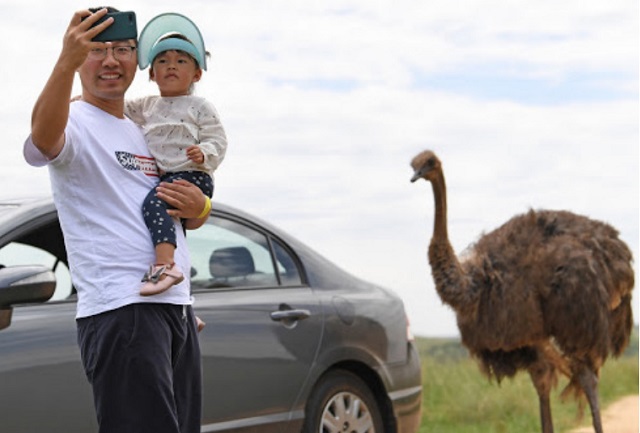
Chinese travellers spend twice as much as Americans. Hannah Ryder and Rosie Wigmore look at how Africa can attract a bigger share of this lucrative market.
Before Covid-19 struck, a competition was about to heat up. March 2020 – around the time that African countries started to close their borders – would have been the time when African tourism agencies would be gearing up to market their top destinations to Chinese tourists, targeting the October national holiday or “Golden Week”. Golden Week is one of two major national Chinese annual holidays alongside Chinese lunar New Year, which takes place in either January or February.
Chinese tourists are really worth targeting, given the country’s income growth. Between 2010 and 2019, the number of Chinese travelling abroad every year trebled to 155m, accounting for over 10% of all outbound tourism globally. Importantly, around 8.5% of these trips were made during Golden Week and lunar New Year – making them a predictable opportunity to attract outbound tourists from a country where personal annual leave is limited outside the other most important global holidays in July/August and December.
Furthermore, Chinese tourists spend more than others – the WTO estimates almost $1,000 per trip, double that of US tourists.
It’s a no-brainer to try to attract Chinese sightseers to African destinations. Hence entry requirements for Chinese nationals have gradually been relaxing across the continent. In Morocco, Chinese arrivals reportedly increased by 378% in the six months after Chinese nationals were exempted from entry visas in 2016.
Chinese nationals can now arrive in 27 African countries without previously applying for a visa. Some countries, such as Angola and South Africa, have also made it easier for Chinese business travellers to obtain long-term multiple-entry visas.
However, since Covid-19, tourists have become scarce. While Africa as a whole generally attracts few global tourists – just 4% of the world’s total – several countries are dependent on tourism, such as Morocco, Mauritius, Seychelles, Tunisia and Tanzania. Overall, 24m people on the continent rely on tourism for their jobs.
Low tourism has therefore had a huge effect on Africa, despite the fact that among the most dependent are countries that have best managed Covid-19 globally. For instance, six of the 10 most tourism-dependent countries in Africa have recorded under 10,000 cases since the pandemic began. Mauritius has recorded just 15 Covid-19 deaths to date, Seychelles just 25.
However, despite this achievement, their economies are suffering. In Seychelles, tourism revenues declined by 61% in 2020, and as a result the country’s 2021 budget has had to be slashed by 10%.
Putting Africa on the Chinese tourism map
The problem with Chinese tourists is that, even before Covid-19, the African continent was hardly on the map. As already noted, Africa attracts a very small proportion of the world’s tourists, and of this, China is an even smaller proportion.
In 2018, while estimates vary, data suggests that Africa attracted less than 1 of every 100 Chinese tourists. That puts Chinese tourists at close to par with the numbers of British tourists entering Africa every year – even though fewer British people travel abroad. Or, to put it differently, there are at least three American and two French tourists for every Chinese tourist visiting Africa.
So, what now? African countries are obviously desperate to restart tourism. As an example, Mauritius has become the first African country to launch a so-called “digital nomad” long-term tourist visa – including a vaccine in the arrival package.
Seychelles, which already doesn’t require visas for Chinese or any other travellers, is vaccinating its population as fast as possible in an effort to create herd immunity – over 50% of its inhabitants were fully vaccinated by late April.
But should African countries resume the hard work of trying to attract Chinese tourists specifically, and what would that entail?
 The Independent Uganda: You get the Truth we Pay the Price
The Independent Uganda: You get the Truth we Pay the Price





